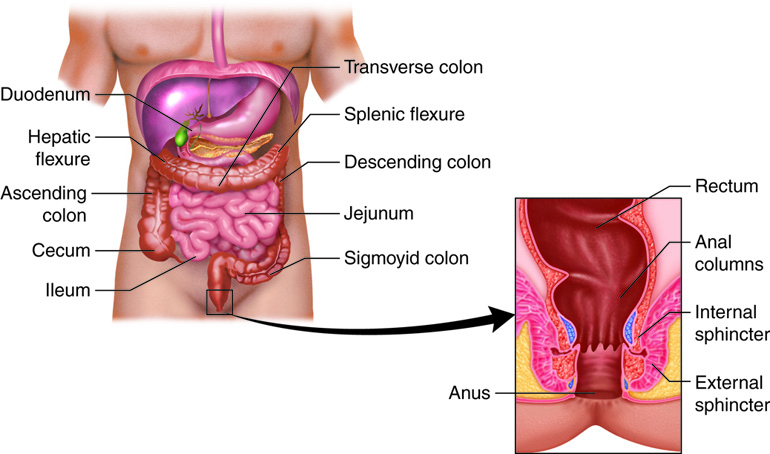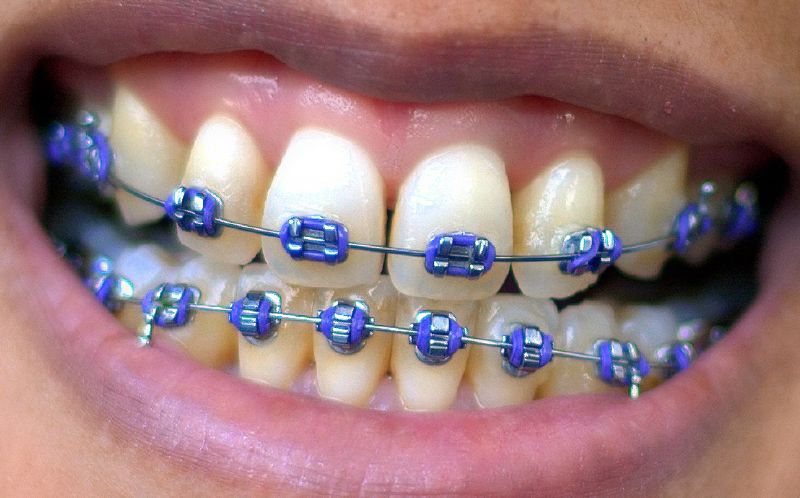
Your body is a masterpiece of biology—intricate, intelligent, and constantly communicating with you. It possesses its own ingenious way of sending signals when something is out of balance, a subtle language we often overlook in our busy lives. Whether it’s that nagging fatigue that lingers despite ample rest, brittle nails that seem to crack at the slightest touch, or mood swings that arrive without a clear trigger, these aren’t random inconveniences. They are the quiet whispers of your body, often hinting at hidden nutrient deficiencies that need your attention.
In a world overflowing with processed foods, demanding lifestyles, and the allure of quick fixes, many of us unknowingly run low on essential vitamins and minerals. The human body is meticulously designed to thrive on a delicate orchestra of nutrients, with each one playing a crucial role in vital processes such as energy production, robust immunity, mental clarity, and overall vitality. When even a single note goes missing from this intricate symphony, the beautiful music of health can unfortunately falter. These nutrient deficiencies are not just about severe malnutrition or poverty; they touch people everywhere, across all walks of life. Even in developed nations where food is abundant, diets rich in sugar, refined grains, and fast food can leave individuals undernourished, creating a population that appears fed but is far from truly nourished.
So, how do we tune in and understand the critical messages your body is trying to convey, telling you it needs help? Let’s embark on a fascinating journey into the world of nutrient signals, where scientific insights meet the realities of everyday life. Together, we’ll uncover the top signs that point directly to potential deficiencies, empowering you to recognize them early and take proactive steps toward better health. Understanding nutrients is, after all, the very foundation of your well-being, fueling life itself.

1. **Persistent Fatigue: The Body’s Cry for Energy**Fatigue truly stands out as one of the most common and, paradoxically, most overlooked signals of nutrient deficiency. When exhaustion becomes a constant companion, persisting stubbornly despite adequate sleep and rest, it’s often your body pleading for specific vitamins and minerals that are crucial for energy production. It’s not always just a matter of laziness or overwork; more often, it’s biology waving a red flag, indicating an underlying nutritional imbalance.
One of the primary culprits behind pervasive tiredness is iron deficiency, which is the leading cause of anemia across the globe. When iron levels are low, your cells are literally starved of oxygen. Without sufficient iron, hemoglobin, the protein in red blood cells, cannot transport oxygen efficiently throughout your body, making fatigue an inevitable and overwhelming experience. If your iron levels are low, you might also find yourself always feeling cold, experiencing frequent headaches, and feeling dizzy often. As Dr. Patricia Graham, an internal medicine specialist, advises, you should “Always get that checked out. We will do a blood test to check your iron levels.”
Beyond iron, deficiencies in vitamin B12 and folate also significantly impair red blood cell production, compounding the problem of oxygen delivery and deepening your sense of exhaustion. Magnesium, another incredibly vital player, is involved in more than 300 enzymatic reactions, many of which are central to energy metabolism. When magnesium runs low, muscles can cramp, sleep often becomes restless, and fatigue only deepens. Even vitamin D deficiency has been consistently linked to low energy, partly due to its important role in mitochondrial function, the powerhouses of our cells.
The good news is that many instances of iron deficiency can be successfully eliminated with targeted supplements, though it might take “three to four months to remedy,” Dr. Graham notes, emphasizing that “it is doable.” The recommended daily allowance (RDA) for iron is 8 mg for men over 18 and 18 mg for women. Be sure to also include iron-rich foods in your diet, such as spinach and beans. For vitamin B12, “Taking B12 supplements will bring back and maintain proper B12 levels. ‘The body does not create B12 on its own,’ Graham explains.” Healthy adults typically require 2.4 mg of B12 daily. Vegans, in particular, should note that plant-based diets eliminate most B12-rich foods like meat and dairy, increasing their risk of deficiency, but they can get their daily dose from almond milk, nutritional yeast, and fortified soy and coconut milk. For vitamin D, the RDA is 600 IU (800 IU for adults age 71 and older), and foods like salmon, herring, sardines, canned tuna, oysters, shrimp, and mushrooms, as well as fortified cow’s milk, soy milk, orange juice, oatmeal, and cereals, are excellent sources. Even just 10 minutes of daily sunlight exposure can give your body a boost in vitamin D production.
Read more about: A Heart Surgeon and Survivor’s Vital Warning: 10 Heart Symptoms You Must Never Ignore

2. **Brittle Hair and Nails: Keratin’s Distress Call**Our nails and hair often act as early warning systems, among the first bodily features to reveal signs of nutrient deficiencies. This is because they grow rapidly and rely heavily on a steady, continuous supply of specific building blocks. When these crucial nutrients are missing or in short supply, the structural integrity of your hair and nails can become compromised, leading to noticeable changes that are more than just cosmetic concerns.
Brittle, splitting nails, for instance, are a classic indicator that can point directly to iron deficiency. A more advanced sign of anemia is spoon-shaped nails, a condition medically known as koilonychia. Moreover, those small, white spots that sometimes appear on your nails may suggest a zinc deficiency, as zinc is absolutely crucial for efficient cellular repair and proper protein synthesis throughout the body, including in nail formation. These visible cues are your body’s subtle way of communicating an internal imbalance that warrants attention.
Regarding your hair, excessive hair loss, particularly diffuse thinning, can be explicitly linked to deficiencies in several key nutrients, including iron, zinc, biotin, and protein. Biotin, a vital B-vitamin, is especially important for the production of keratin, the essential protein that forms the very structure of your hair, nails, and skin. Low levels of vitamin D can also impair the normal cycling of hair follicles, leading to noticeable thinning. While hair loss can sometimes stem from factors like stress or genetics, if it appears suddenly or worsens progressively over time, nutritional factors deserve a thorough and close examination. Dr. Graham highlights this, stating, “While everyone loses about 100 strands of hair a day, suddenly finding clumps of hair on your pillow or in your shower drain merits a mention to your doctor.”
The excellent news is that correcting these nutrient imbalances through mindful dietary changes or appropriate supplements often helps to restore the strength and vitality of both your hair and nails. For adequate iron intake, revisit the iron-rich foods like spinach and beans. To boost zinc, consider adding nuts, seeds, and lean proteins to your diet. Biotin can be found in foods such as eggs, nuts, seeds, and sweet potatoes. Ensuring sufficient protein intake through lean proteins and legumes is also fundamental. Consistent care and attention to your nutritional intake can help prevent further deterioration and promote healthier growth.

3. **Pale or Sallow Skin: A Canvas of Inner Health**Your skin, far from being just an external covering, is actually your largest organ and serves as a remarkably visible indicator of your inner health and nutritional status. When your body is lacking essential nutrients, these deficiencies often manifest directly on your skin, transforming it into a living canvas that reflects the internal imbalances at play. Observing changes in your complexion can provide significant clues about your nutritional well-being.
Pale, washed-out, or unusually sallow skin can frequently signal deficiencies in either iron or vitamin B12. Both of these nutrients are absolutely critical for the healthy production of red blood cells, which are responsible for carrying oxygen throughout your body and maintaining your skin’s healthy, vibrant hue. Without sufficient hemoglobin, the protein in red blood cells that gives blood its color, your skin can noticeably lose its natural rosy glow, appearing lifeless and dull. Interestingly, a thyroid disorder can also make your skin dry and pale, alongside causing muscle weakness and aching joints.
Furthermore, a distinct yellowish tinge to the skin can arise specifically from vitamin B12 deficiency. This occurs because severe B12 deficiency can lead to megaloblastic anemia, a condition where red blood cells are abnormally large and break down more easily, releasing bilirubin into the bloodstream and causing a yellow discoloration. Similarly, an inadequate intake of vitamin A can lead to dry, rough skin, while consistently low levels of vitamin C impair collagen production, making the skin more prone to bruising and tearing easily.
Ultimately, healthy, radiant, and vibrant skin absolutely thrives on a consistent supply of a wide range of nutrients. When deficiencies take hold, the skin becomes a direct reflection of those inner imbalances, presenting a clear visual signal that something needs attention. To address these concerns, emphasize iron and B12-rich foods, as previously discussed, such as spinach, beans, fortified dairy alternatives, and nutritional yeast. For Vitamin A, incorporate milk, eggs, mangos, black-eyed peas, sweet potatoes, and apricots into your diet. And for a Vitamin C boost, reach for kiwi, red bell peppers, and, of course, citrus fruits like oranges. Paying attention to your skin’s appearance can be a powerful first step in addressing your nutritional needs.
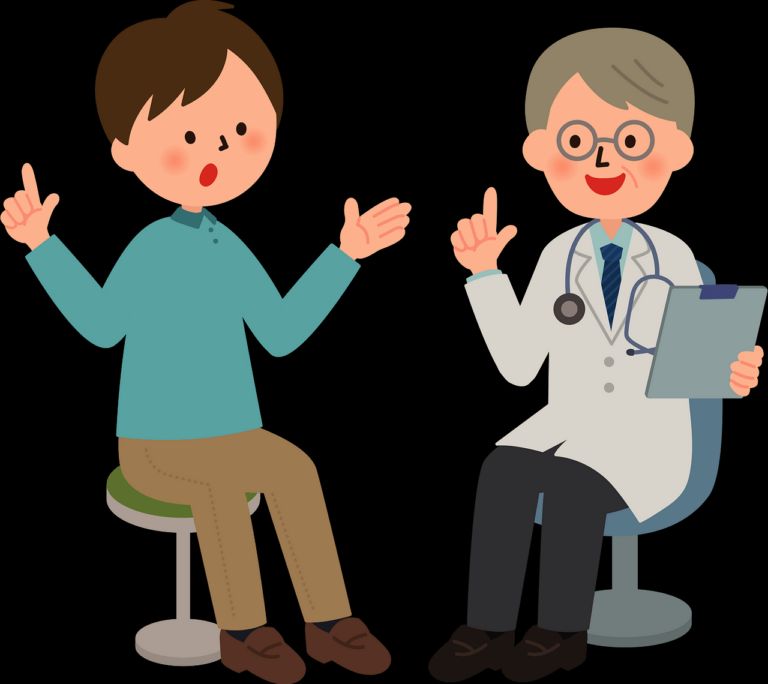
4. **Frequent Illnesses: When Immunity Falters**If you find yourself catching colds more often than usual, or if it seems to take an unusually long time to recover from infections, your immune system may very well be undernourished. This is a critical sign that your body’s defenses are not operating at their peak efficiency. Simply put, nutrients are not merely fuel; they are the essential architects and valiant defenders of your immunity, building and maintaining the complex systems that protect you from pathogens.
Each nutrient plays a specific and indispensable role in bolstering your immune response. Vitamin C, for instance, actively enhances white blood cell activity and significantly strengthens the protective barriers of your skin and mucous membranes. Vitamin D is a powerful modulator of immune responses, helping to prevent both frequent infections and autoimmune flare-ups. Zinc is absolutely essential for the healthy development and effective communication of immune cells, while iron provides crucial support for the proliferation and function of these vital cells.
Without an adequate supply of these fundamental nutrients, your body’s natural defenses weaken considerably, leaving you vulnerable. This vulnerability extends not just to minor inconveniences like common colds, but also to potentially more serious infections. Frequent illness should be seen as your immune system’s urgent and persistent plea for reinforcement, a clear signal that its protective shield needs strengthening from within.
The encouraging news is that increasing your intake of these vital nutrients through a balanced diet or, when necessary, appropriate supplements can significantly improve your immune resilience. For an abundant supply of Vitamin C, actively incorporate kiwi, red bell peppers, and fresh oranges into your daily meals. To ensure adequate Vitamin D, include foods like salmon, herring, sardines, canned tuna, oysters, shrimp, and mushrooms, or opt for fortified foods such as milk and cereals. Zinc can be readily found in nuts, seeds, and lean proteins, while iron-rich options like spinach and beans remain crucial. It’s also important to remember that lifestyle factors, including sufficient sleep and effective stress management, play a substantial role in maintaining a robust immune system alongside your nutritional intake.
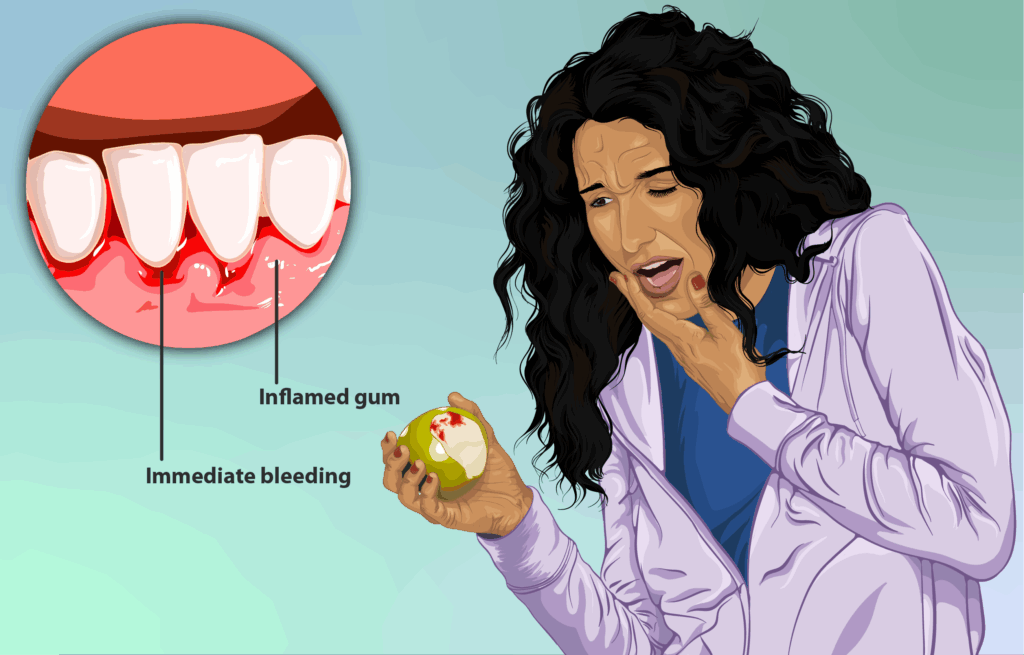
5. **Bleeding Gums and Easy Bruising: The Collagen Connection**Your oral health offers a remarkably direct reflection of your body’s overall nutrient balance. Surprisingly, issues like bleeding gums, especially when they occur routinely during brushing, are often telltale signals of a vitamin C deficiency. This symptom goes beyond just dental hygiene; it points to a deeper systemic issue related to the strength and integrity of your body’s connective tissues.
Vitamin C is not just an immune booster; it is absolutely indispensable for the synthesis of collagen, the primary structural protein that provides strength and elasticity to skin, blood vessels, and gums. Without sufficient vitamin C, your blood vessel walls become fragile, and your gums become inflamed and easily damaged—a classic hallmark of scurvy in its more severe forms. This deficiency weakens the very foundation of these tissues, making them prone to injury and bleeding.
Easy bruising is another distinct and frequently overlooked sign that can indicate weakened connective tissue and fragile blood vessel walls. This symptom can be attributed to insufficient vitamin C, but also to a deficiency in vitamin K. Vitamin K is essential for proper blood clotting, and its deficiency can lead to prolonged bleeding from even minor cuts and spontaneous bruising that seems to appear without a clear cause. These symptoms highlight how interconnected your nutritional status is with your body’s ability to heal and maintain its structural integrity.
Ultimately, your gums and skin are far more than mere cosmetic concerns; they serve as critical windows into your deeper nutritional status. As Dr. Graham keenly observes, “‘Vitamin C is like a cement. It pulls the cells together and makes wounds heal.'” To address these issues, “First and foremost: If you smoke, take steps to quit,” as smoking significantly limits your body’s ability to absorb vitamin C. Then, actively “eat more fruits and vegetables high in vitamin C, including kiwi, red bell peppers and, of course, oranges.” Healthy adults should aim to get 60 mg of vitamin C each day. For vitamin K, incorporating dark leafy greens into your diet is an excellent choice. By boosting these vital nutrients, you can significantly improve your oral health and reduce easy bruising, supporting your body’s natural healing processes.
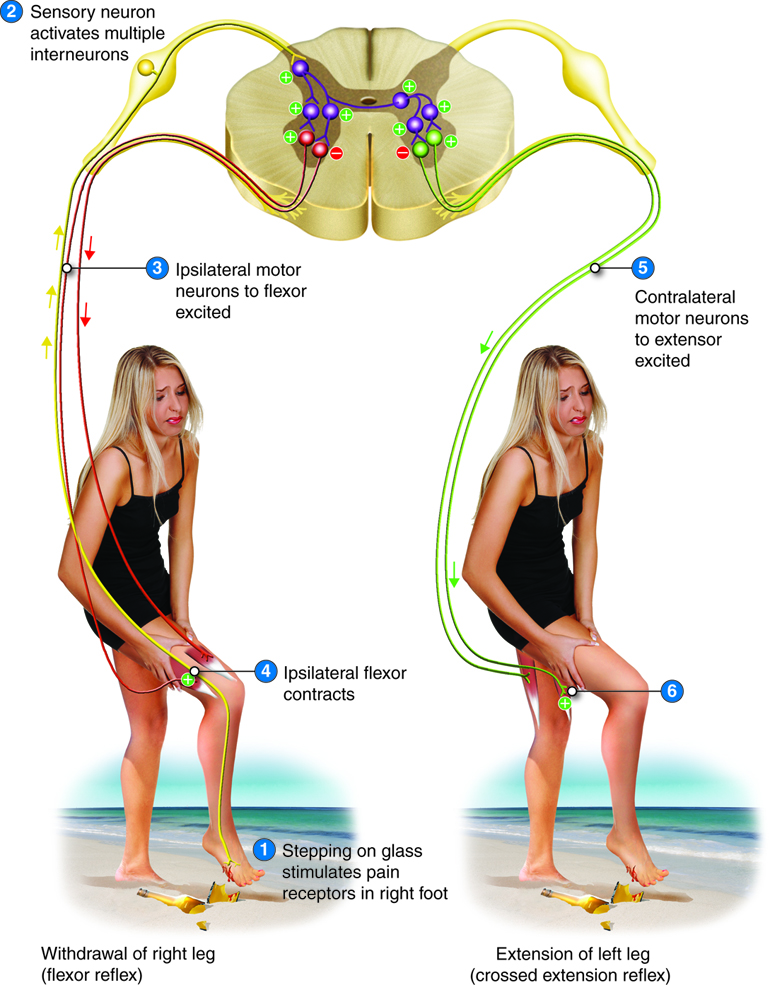
6. **Muscle Cramps, Spasms, and Weakness: Electrolytes Out of Balance**Our muscles are incredibly sensitive indicators of our body’s nutrient levels, particularly when it comes to electrolytes like magnesium, potassium, and calcium. These essential minerals are not just components of our diet; they are vital players in the intricate processes of muscle contraction, relaxation, and efficient nerve signaling. When the delicate balance of these electrolytes is disrupted, your muscles are often the first to communicate their distress through noticeable and sometimes painful symptoms.
When magnesium is deficient, muscles can react with involuntary cramps, persistent twitches, and uncomfortable spasms. Magnesium is crucial for proper muscle relaxation. Similarly, a deficiency in potassium, which can often be caused by dehydration or certain diuretic medications, can lead to generalized muscle weakness, potentially triggering irregular heartbeats known as arrhythmias, and in severe cases, even paralysis. These symptoms are clear signs that your body’s electrical system, which relies on these electrolytes, is struggling to function optimally.
Low calcium levels contribute not only to those painful muscle cramps but also to more systemic issues like brittle bones and persistent dental problems. Dr. Graham underscores calcium’s fundamental role, stating, “‘Calcium regulates your heartbeat.’ So a deficiency could cause an arrhythmia, or irregular heartbeat, and even lead to chest pains.” She further explains, “Calcium works with muscles to help them contract properly. Without enough calcium, the muscles do not fully relax.” These observations emphasize calcium’s multifaceted importance beyond just bone health.
These symptoms are far from random occurrences; they are your body’s urgent warning that its essential mineral reserves are running low and need replenishment. To ensure adequate magnesium intake, incorporate nuts, seeds, dark leafy greens, whole grains, and legumes into your diet. For potassium, emphasize fruits and vegetables like bananas, avocados, spinach, and sweet potatoes. When it comes to calcium, adults should aim to receive 1,000 mg each day from food sources and, if necessary, supplements. Excellent calcium-rich foods include salmon and sardines—which are also fantastic sources of heart-healthy omega-3 fatty acids—along with broccoli, bok choy, and, of course, dairy products such as skim milk, and nonfat or low-fat yogurt.

7. **Vision Problems: When Your Eyes Tell a Story**Your eyes, often poetically referred to as the windows to the soul, serve a far more practical purpose as well: they are remarkable mirrors of your overall nutrient health. Changes in your vision or discomfort in your eyes can frequently signal underlying nutritional deficiencies, prompting a closer look at your dietary habits. Paying attention to these ocular clues can be a proactive step in maintaining not only your vision but also your general well-being.
Poor night vision or a noticeable difficulty adjusting to darkness are classic indicators that can point to a vitamin A deficiency. This is because vitamin A is absolutely essential for producing rhodopsin, a critical pigment found within the retina of each eye that enables you to see clearly in low light conditions. When left unaddressed, night blindness can regrettably progress to xerophthalmia, a severe condition that can damage your cornea and ultimately lead to blindness. Another early symptom of xerophthalmia is the appearance of Bitot’s spots, which are slightly elevated, foamy, white growths that occur on the conjunctiva, the white part of the eyes. Dr. Graham further clarifies, “‘A lack of vitamin A causes the cornea to become dry and that makes the eyes cloudy and can lead to vision loss.’ ‘It can also damage your retina.'”
Beyond night vision, other eye issues can also be linked to nutrient gaps. Persistent dry eyes, a gritty sensation, or frequent eye infections can be associated with low vitamin A or insufficient omega-3 fatty acids, both of which are vital for maintaining healthy tear production and anti-inflammatory balance in the eyes. Furthermore, blurred vision or the premature development of cataracts has been associated with deficiencies in powerful antioxidants like vitamin C, vitamin E, and zinc. These nutrients play a crucial role in protecting delicate eye tissues from the damaging effects of oxidative stress.
Healthy vision profoundly depends on consistent nourishment, and when your sight falters, nutrition should always be considered as an integral part of your eye care. To boost your vitamin A intake, incorporate foods such as milk, eggs, mangos, black-eyed peas, sweet potatoes, and apricots into your diet. It’s generally recommended to avoid vitamin A supplements unless diagnosed with a deficiency by a medical professional, as vitamin A is fat-soluble and can accumulate to toxic levels in the body. For omega-3 fatty acids, fish oils are an excellent source. For vitamin C and zinc, refer to the previously mentioned food suggestions. Alongside your general practitioner, it’s wise to see your eye doctor annually—and certainly sooner if you start experiencing blurriness or trouble with your night vision, as early detection is key to managing and reversing these issues.”
Read more about: George Raveling: A Legacy of Breaking Barriers, Coaching Excellence, and Shaping American History
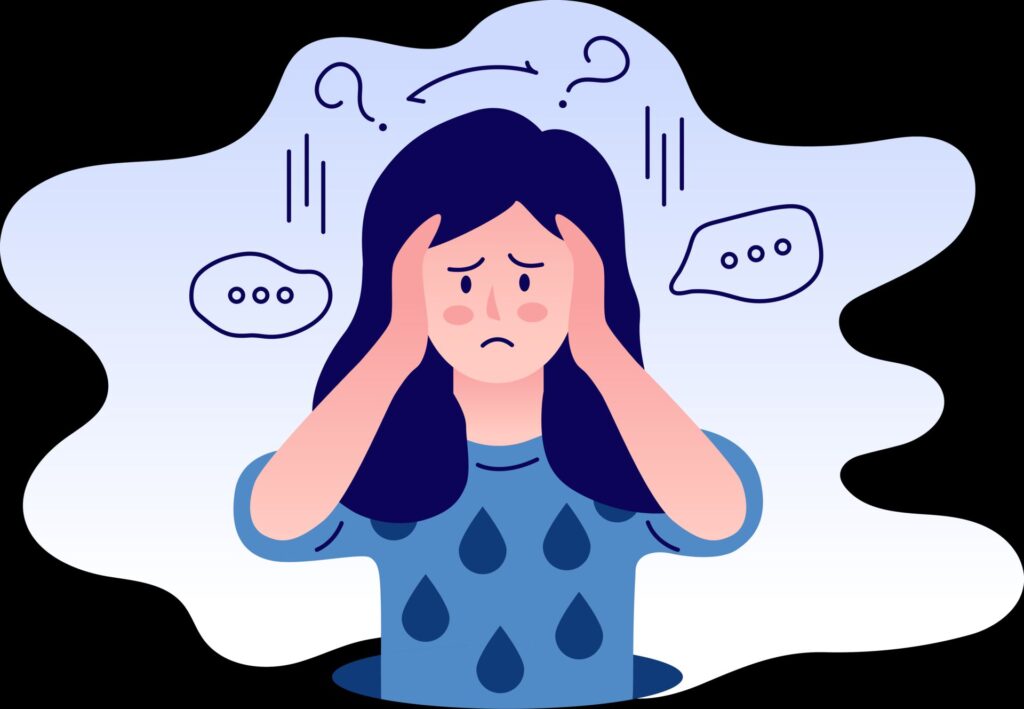
8. **Mood Swings, Anxiety, and Depression: Nutrition of the Mind**Your mental and emotional well-being are deeply tied to your diet. Mood swings, anxiety, and depression can signal nutrient deficiencies. Our brain needs a steady supply of nutrients to produce neurotransmitters, the chemical messengers regulating mood. When these are lacking, brain chemistry can be disrupted, leading to emotional turbulence.
Neurotransmitters like serotonin depend on tryptophan, vitamin B6, and magnesium. Dopamine needs iron, folate, and vitamin B12. Additionally, omega-3 fatty acids are crucial for healthy brain cell membranes, influencing cognitive function and emotional stability. Low levels of these nutrients are linked to mood disorders, making emotional shifts without clear triggers a sign for nourishment.
To support mental health, prioritize a nutrient-rich diet. Include chickpeas, salmon, and chicken for B6; nuts, seeds, and leafy greens for magnesium; and legumes for folate. Fatty fish like salmon provides omega-3s, or consider supplements. Addressing these nutritional gaps can notably improve mental clarity and emotional resilience.
9. **Numbness, Tingling, or Burning Sensations: Neurological Whispers**When you feel “pins and needles,” numbness, or burning in your limbs, these are often critical signals of nutrient deficiencies impacting your nerve network. Such “neurological whispers” indicate a potential disruption in optimal nerve function, making it vital to heed these messages from your body.
A classic culprit is vitamin B12 deficiency. This vitamin is essential for the myelin sheath, which insulates nerve fibers for efficient electrical signal transmission. Insufficient B12 damages myelin, causing symptoms like numbness, tingling, or burning. Dr. Patricia Graham warns that “over time, B12 deficiency can permanently damage your nervous system.”
Replenishing B12 is usually simple. “Taking B12 supplements will bring back and maintain proper B12 levels,” as the body “does not create B12 on its own.” Adults need 2.4 mg daily. Vegans particularly benefit from fortified almond milk and nutritional yeast. Incorporating folate-rich foods like leafy greens and B6-rich foods such as chickpeas and salmon further supports optimal nerve health.
10. **Unusual Food Cravings or Eating Habits: The Body’s Instinctive Calls**Unexplained cravings for unusual foods, or even non-food items (pica), are often more than just odd habits. These “instinctive calls” from your body are telltale signs of underlying nutrient deficiencies. While the body intelligently seeks to restore balance, these cravings provide crucial clues about what might be missing internally.
A common link exists between craving ice, dirt, or chalk and iron deficiency anemia. Beyond pica, strong desires for salty foods might signal adrenal issues or sodium imbalance. Persistent chocolate cravings could indicate a magnesium deficiency. Even sugar cravings can relate to blood sugar imbalances tied to chromium deficiency.
Listening to these cravings, especially if unusual, is a powerful first step. For iron, include spinach, beans, and lean meats. For magnesium, prioritize nuts, seeds, dark leafy greens, and legumes. For potential chromium links, consider whole grains and broccoli. Understanding these nutritional roots empowers healthier, more informed choices.

11. **Slow Wound Healing: Delayed Repair**When a simple cut or a surgical incision heals unusually slowly, it’s a significant indicator that your body’s repair machinery lacks essential nutrients. This “delayed repair” means your body struggles to regenerate tissues and fight infection efficiently, highlighting a crucial need for a full arsenal of building blocks.
Protein is fundamental for new tissue formation. Vitamin C, described by Dr. Graham as “like a cement,” is indispensable for collagen synthesis, providing strength to skin and tissues, and boosting immune defenses. Zinc is another vital mineral, critical for cell growth, DNA synthesis, and protein formation, all integral to regenerating damaged tissues.
To accelerate wound healing, prioritize a nutrient-rich diet. Ensure adequate protein from lean meats, fish, eggs, and legumes. For Vitamin C, incorporate kiwi, red bell peppers, and fresh oranges, aiming for 60 mg daily. Boost zinc intake with nuts, seeds, and lean proteins. Providing these critical nutrients empowers your body to heal more swiftly and robustly.

12. **Cracks at the Corners of the Mouth: Oral Health Indicators**Painful, inflamed fissures at the corners of your lips, known as angular cheilitis, are more than just cosmetic. These “oral health indicators” often signal specific nutrient deficiencies, revealing the profound connection between diet and mouth health. While factors like lip licking can worsen them, root causes are frequently tied to vitamin shortfalls.
Angular cheilitis is commonly linked to deficiencies in iron, riboflavin (vitamin B2), and other B vitamins. These are vital for cellular repair and healthy mucous membranes. When scarce, the delicate skin at your mouth’s corners becomes fragile, prone to cracking, inflammation, and infection. It’s your body’s way of showing impaired cellular repair.
To address and prevent angular cheilitis, focus on replenishing missing nutrients. For iron, choose spinach, beans, and lean meats. Boost riboflavin with dairy, eggs, and green leafy vegetables. Other B vitamins are found in whole grains and legumes. Correcting the internal nutritional imbalance is the most effective strategy for lasting healing and comfort.

13. **Bone Pain and Fractures: The Foundation of Strength**Persistent aches deep within your bones or easy fractures are critical alerts from your body, signaling a weakening of its “foundation of strength”—your skeletal system. These symptoms often stem from significant deficiencies in essential nutrients like vitamin D and calcium, crucial for maintaining bone density.
Dr. Patricia Graham advises reporting “growing pains” in adults, as they can indicate vitamin D deficiency. Vitamin D regulates calcium and phosphate for bone mineralization; without it, calcium absorption falters, leading to softened bones and increased fracture risk. Calcium is also vital for bone structure and heart rhythm, with Dr. Graham noting a deficiency “could cause an arrhythmia.”
When calcium intake is low, the body draws it from bones, weakening your skeletal structure and increasing osteoporosis risk. To bolster bone health, aim for 600-800 IU of vitamin D daily from fatty fish, fortified foods, or 10 minutes of sun. Adults need 1,000 mg of calcium daily from salmon, sardines, broccoli, and dairy.
14. **Digestive Disturbances: Gut Reactions to Nutrient Gaps**Your digestive system is a finely tuned engine, processing food and acting as a critical interface for your overall health. Frequent bloating, persistent diarrhea, or chronic constipation are often “gut reactions” signaling underlying nutrient deficiencies. Optimal digestive health depends on a steady supply of various nutrients for smooth and efficient gut function.
Insufficient fiber is a common culprit, as it adds bulk to stool, facilitates regularity, and feeds beneficial gut bacteria, preventing constipation and poor absorption. Magnesium, a natural muscle relaxant, helps regulate gut motility; its deficiency can contribute to constipation and spasms.
Certain B vitamins, particularly B12, are also vital for digestive tract function. Deficiencies can impair enzyme synthesis and gut lining integrity, leading to absorption issues and inflammation. To support robust digestive health, prioritize whole foods, increase fiber, and ensure adequate magnesium and B vitamins, consulting a professional for persistent issues.
Your body is an astounding, intricate system, constantly sending signals to guide you toward optimal health. These “whispers”—whether fatigue, brittle nails, unexpected mood shifts, or subtle neurological hints—are not random occurrences but profound messages. They are your body’s way of asking for the precise nourishment and care it needs to thrive. Truly listening, understanding their nutritional roots, and taking proactive steps is the most powerful investment you can make in your well-being. By embracing a balanced, whole-food diet and consulting professionals when needed, you unlock vibrant energy, mental clarity, and a life lived in full, harmonious health. Pay attention, nourish wisely, and watch your body respond with vitality.


